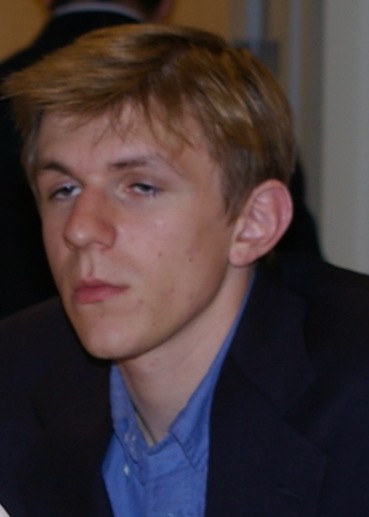Race and James O’Keefe
In 2006, I attended an event hosted by the Robert Taft Club, a proudly un-PC debate society run by young conservative activists who worked at the Leadership
Jul 31, 2020218.2K Shares3.2M Views
In 2006, I attended an event hosted by the Robert Taft Club, a proudly un-PC debate society run by young conservative activists who worked at the Leadership Institute — Marcus Epstein, Kevin DeAnna — and The American Conservative. They specialized in subjects that would be too controversial for other groups, and the subject of this forum was “whether conservatives should talk about race.” The big draw: Jared Taylor, the politically toxic editor of the openly racist American Renaissance magazine.
The Taylor appearance was buffeted by controversy and moved, at the last minute, to a location a few blocks away from its original location near the Clarendon metro stop in Virginia. It was strange enough to draw out people like me and a photographer for the One People’s Project, who snapped pictures of the attendees, wrote a report — and then, unfortunately, had most of the photos seized by the FBI. A zoomed-in headshot of James O’Keefe (after the jump), then working for the Leadership Institute, survived, although it cropped out the table he was sitting at, covered in controversial literature. O’Keefe’s position at the Leadership Institute gave him some ownership of the event, but in general the crowd consisted of conservatives and libertarians who wanted to see some controversy, some fireworks — not so much of people who agreed with Taylor.
One People's Project
Last week the One People’s Project posted the headshotand an account of the event. Today, Max Blumenthal uses that event as a jumping-off point for a storyon O’Keefe’s problems with race. A related story that hasn’t really been written is the acceptance of really extreme racial theorizing — some would just call it racism — among a small segment of the campus conservative movement.
When I talked to many veterans of the same programs that produced James O’Keefe for my story on the more under-the-radar success of the conservatives-on-campus programs, they remembered, not fondly, people like Marcus Epstein who signed up with conservative groups in order to say shocking things about race or immigration. And for several years, Epstein was employed by the Leadership Institute, Bay Buchanan, and Tom Tancredo. His willingness to push the envelope and invite extremists to public forums was seen more as intellectual bravery than as something controversial that would come back to haunt him –until last year.
I’ve known campus conservative activists for a decade, and I know the people who put together the 2006 forum quite well. Extremism — theories about race, right-wing European politics, anti-immigration rhetoric — is seen in these circles as something of a lark. It’s forbidden knowledge. It terrifies liberals. But people like Marcus Epstein and James O’Keefe feel (or felt) like they can get away with playing around in these circles before getting down to serious politics. And once they make that leap — as Epstein did with Buchanan, or as O’Keefe did with his ACORN tapes — the idea of being brought down by controversy is laughable. They’d faced down the Southern Poverty Law Center and won, so what do they have to fear?
Blumenthal’s article is worth reading for the background on O’Keefe’s race obsession at various points in his career. It makes a connection that liberals have had trouble making, between the right’s attacks on ACORN and the organization’s work registering poor, mostly non-white voters. But the new attention on the 2006 Robert Taft Club event suggests that young campus activists with big ambitions are going to find their dabblings in extreme politics coming back to haunt them. In other words, can the tactics conservatives used to attack Safe Schools Czar Kevin Jennings or Green Jobs Czar Van Jones–digging into their associations, reporting that they attended scary-sounding events, finding out-of-context, radical-sounding quotes from their earlier careers–be used against conservative activists?

Rhyley Carney
Reviewer
Latest Articles
Popular Articles
